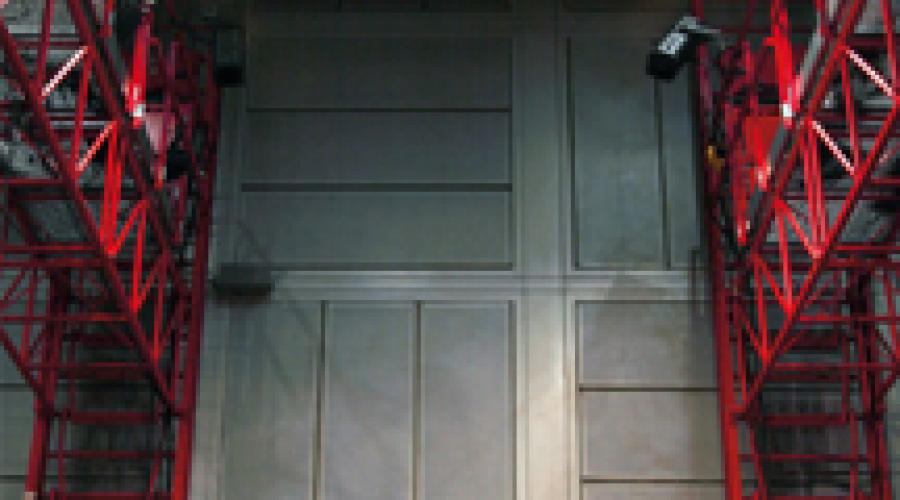Archive
CNMAT Flashback
A look back at some items in our archives.
Presentation of the new sound spatialisation system installed at IRCAM, featuring UC Berkeley composer Rama Gottfried
Improv Weekend: Presentations
Archive Browser
Hardware Plaforms
Information about specific platforms / targets.
OSC Address Schema
The OSC address schema of micro-OSC is broken down into a number of modules. Not all modules may be present depending on the hardware support and compile-configuration. Some addresses may change in the future--this document will be updated to reflect the current state of the OSC message address schema.
Status LED
Enables control over on-board status lights.
-----
**/status/0** : Get/set status light state
Some boards have more status lights, which are numbered /0 /1, etc.
Understands "on", "off", 0, 1.
TX: [ /status/0 ]
RX: [ /status/0 ,i 0 ]
TX: [ /status/0 ,s "on" ]
RX: [ /status/0 ,i 1 ]
Profile
The profiling system is enabled by a compile-time switch.
-----
**/profile/** : Reports timer measurements made over various sections of code.
These messages are reported approximately once per second.
uOSC Developer Documentation
Documentation for the uOSC Developers Group.
Device
-----
**/device/id** : Get/set device identification string.
The identification string is an ASCII character sequence, limited to 8 characters in length. It is automatically populated with a random-number on first startup. The device ID is also reported as the "serial number string" in the USB descriptor, but you will need to restart the device for this to be updated.
EEPROM
The EEPROM module is an experimental module, mainly of interest to developers. It interfaces directly to the EEPROM at the byte level. Presently only the first 64 bytes are in use by micro-OSC, and the current platforms have 256, however more space may be required in the future.
Terms of Use
The following copyright notice and terms of use apply to the micro-OSC firmware, its source code, and other supporting software distributed by CNMAT:
Copyright © 2008 The Regents of the University of California (Regents). All Rights Reserved.
OSC over the USB-Serial Transport
# Overview
A serial port is a bidirectional point-to-point communications channel. Open Sound Control is a datagram protocol which means that it requires a packetized transport (UDP is a common example of this). Serial isn't a packetized transport (nor is, for example, TCP).
# The SLIP framing protocol
USB Descriptor and Device Identification
Here is an overview of the micro-OSC device descriptor.
The VendorID/ProductID used is by permission from Microchip Technology Inc. under a sublicense agreement. This VID/PID may only be used with Microchip products.
micro-OSC Project Documentation
This document is the definitive information source regarding the use, implementation and design for the uOSC platform.
Known Bugs and Possible Issues
- Sometimes the device does not seem to receive commands to toggle the status lights. After resetting uOSC, it works again.
- USB Prober only seems to work correctly before the serial port is activated. Suspect the control endpoint isn't getting serviced because it is starved by activity on the CDC data endpoint.
Setup for Windows XP
micro-OSC is a USB class-compliant serial device -- it is automatically supported by built-in drivers provided by operating system manufacturers. For some reason, on Windows, you still need to load a driver "information" file, otherwise it won't work.
Acquiring a New Musical System 3 of 3
Acquiring a New Musical System 2 of 3
Acquiring a New Musical System 1 of 3
- Psyche Loui's exit talk, spring 2007
Meeting agenda 6/26/08
Meeting agenda for Friday 6/20/08:
- Review candidates for Music Applications Programmer position
- Review status of current research projects
- Sponsored research: Starkey
- Affiliates: Meyer, Sennheiser, Waves, Native Instruments, Ableton...
- Clarify profile of Rimas replacement and goals for Meyer collaborations
- Discuss fundraising strategy for next year.
Overview
# Project objectives
- Low cost microcontroller target
- Maximally complete OSC implementation
- Timestamps and synchronization
- Floating point support
- High performance transport
- Clock synchronization
- Hardware features
- TTL, SPI and I2C digital connectivity
- Ratiometric ADC for 3.3v regulated systems
OSC
Provides OSC protocol meta-information and clock synchronization services.
-----
**/osc/version** : Report OSC version
TX: [ /osc/version ]
RX: [ /osc/version ,s "1.0" ]
-----
**/osc/type/accepts** : List typetags understood by device
TTL Serial
Enables digital communication with devices over TTL serial (0-5v signaling). Baud rates of 2400-115200.
Note that the TTL serial mode conflicts with SPI and I2C modules--only one can be used at a given moment.
The transmit pin is C6 and the receive pin is C7 on the PIC18F series.
**NOTE:** Do NOT leave the input pin (C7) floating! If it is not in use, it must be grounded, otherwise the hardware UART module will behave strangely and may lock up the firmware.
-----
**/ttl/baud** : Get/set baud rate, argument is int-32


